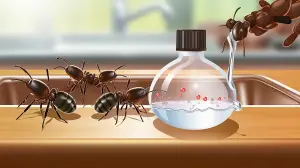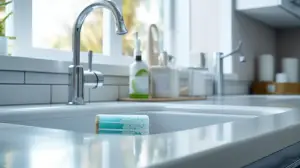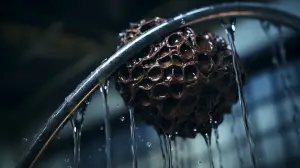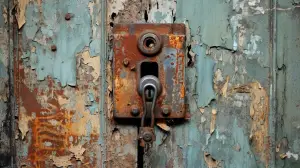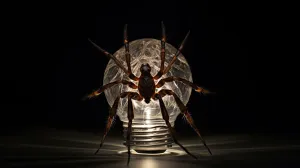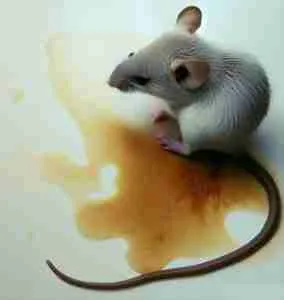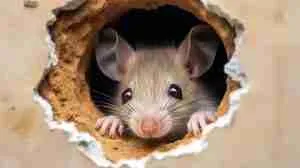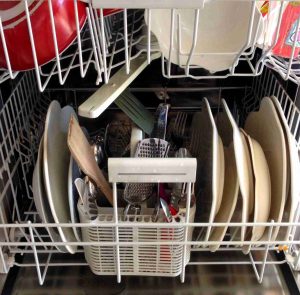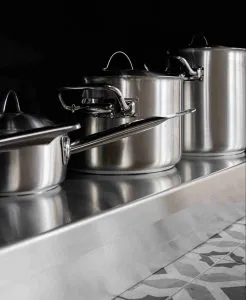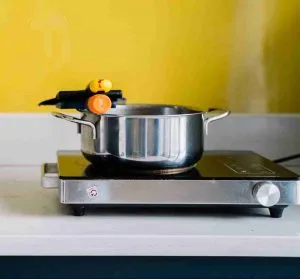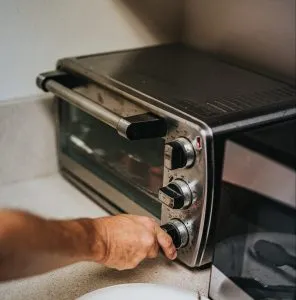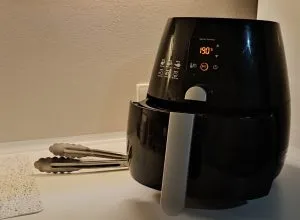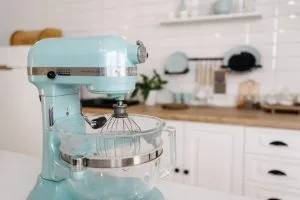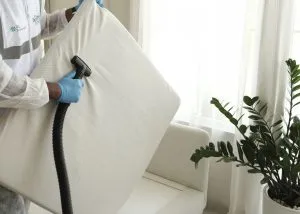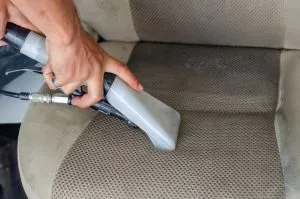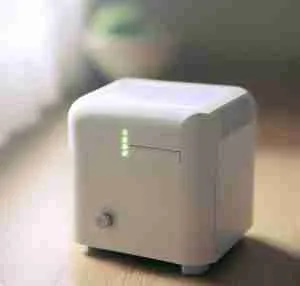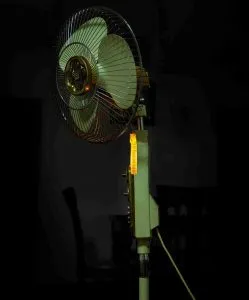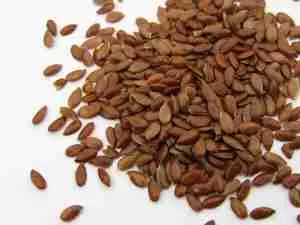Have you ever noticed tiny black worms in your bathroom? If so, you’re not alone. These pests are called shower worms, and they’re a common problem in many households. Shower worms are black, thin, and can range from a few millimeters to several inches in length.
But where do these little black worms come from, and why are they in your shower? In this article, I will explore the potential causes of shower worms and discuss effective solutions to get rid of them.
Contents
ToggleKey Takeaways:
- Shower worms are a common problem in many households.
- These pests are black, thin, and can range from a few millimeters to several inches in length.
- It’s important to understand the potential causes of shower worms to effectively get rid of them.
Identifying Little Black Worms and Their Origin
Before we can effectively get rid of little black worms in our shower, we need to understand what we’re dealing with. These worms can vary in size and shape, but common traits include being small and black. They are often found in the shower drain or around areas with stagnant water. If you’re curious about other common household pests, check out this comprehensive guide on bugs in the house.
There are several different types of worms that can infest your bathroom, including drain fly larvae, sewer and moth fly larvae, and other small black worms in the shower. They typically enter your bathroom through the plumbing, where they lay their eggs in stagnant dampness or organic matter buildup.
It’s important to note that not all small black worms in your shower are harmful, and some may even be beneficial in helping to break down organic matter. However, if you notice large numbers of worms or they are causing damage to your drains, it’s time to take action.
| Types of Small Black Worms in the Shower | Appearance | Common Causes |
|---|---|---|
| Drain fly larvae | Small, black, and slender with a pointed head | Stagnant water and organic matter buildup in drains |
| Sewer and moth fly larvae | Small, black, similar in appearance to drain fly larvae | Sewer lines and other areas with water |
| Other small black worms | Varies in appearance, often small and black | Still water, organic matter buildup, and other conducive conditions |
If you’re unsure of the type of worm in your shower, it’s best to consult a pest control professional for identification.
To prevent further infestations, it’s important to address the underlying causes of small black worms in your shower and to keep drains and other areas clean and free of organic matter. More information on prevention and treatment can be found in later sections of this article.
Common Causes of Little Black Worms in Your Shower
If you’ve ever encountered black worms in your shower or pipes, you know how unsightly and frustrating their presence can be. But what is causing them to appear in the first place? In this section, we’ll explore some of the most common reasons why these pesky creatures might be setting up shop in your bathroom.
Stagnant Water
One of the main culprits behind black worms in your shower is fixed water. When water accumulates and does not properly drain, it creates a breeding ground for these pests to thrive. Such kind of water can occur in several parts of your bathroom, including the shower drain, sink drain, or even in leftover water on the floor or in a bucket.
If you’re considering a bathroom renovation or just curious about the costs, here’s a detailed article on how much it costs to tile a shower.
Organic Matter Buildup
Another common cause of these worms is the buildup of organic matter. This can include hair, soap scum, and other debris that accumulates in your drain and pipes over time. As the organic matter decomposes, it provides an ideal environment for these worms to grow and multiply.
Bathroom Pests
There are a variety of pests that can find their way into your bathroom and contribute to the presence of black worms. Drain flies, for example, lay their eggs in moist organic matter and their larvae resemble small black worms. Moths, silverfish, and other insects may also be attracted to water and organic matter.
Now that we’ve identified some of the main causes of these worms let’s move on to the solutions. In the next section, we’ll cover effective home remedies and treatments that can help you get rid of these pesky pests for good.
Effective Home Remedies and Treatments for Shower Worms
If you’ve noticed tiny dark worms in your bathroom, particularly in your shower or drains, you might be dealing with drain worms or drain fly larvae. While these pests are not harmful, they can be an unwelcome sight and their presence might indicate poor hygiene in your bathroom. Fortunately, there are several effective home remedies and treatments you can use.
For those looking to prevent water splashes in the bathroom, consider creating your own shower splash guard.
Important note: Before attempting any treatments, make sure to wear gloves and take proper precautions to avoid contact with the worms or larvae.
1. Boiling water: One of the simplest and most effective home remedies for removing shower worms is boiling water. Simply boil a pot of water and pour it down the affected drain. The hot water will kill any worms or larvae, and can also help break down any buildup that might be contributing to the infestation.
2. White vinegar: Another effective remedy is using white vinegar. Mix equal parts of water and vinegar in a spray bottle and spray the affected area. Let it sit for about an hour, and then rinse with hot water. Vinegar’s acidic properties will help dissolve any organic matter buildup, which can attract shower worms.
3. Drain cleaners: There are several drain cleaners available in the market that can effectively help you forget about shower worms. Look for a product that specifically targets organic matter buildup, as this is often the underlying cause of infestations. Make sure to follow the instructions carefully, as some products can be harsh and dangerous if not properly handled.
4. Keep your drains clean: Prevention is key when it comes to dealing with shower worms. Make sure to regularly clean your drains using a mixture of baking soda and vinegar, which can effectively dissolve any buildup. Using drain covers can also help prevent future infestations by keeping out adult flies, which lay eggs in fixed water.
By using these home remedies and preventive measures, you can maintain a clean and hygienic bathroom. However, if the infestation persists or if you’re dealing with sewer moths or other pests, it might be time to seek professional assistance.
Are Drain Worms Harmful to Humans?
Alright! So, here’s the scoop. While the idea of worms lurking in our drains can give us the heebie-jeebies, these tiny wrigglers aren’t out to harm us. Actually, drain worms, also known as drain fly larvae, mainly feed on the organic matter and gunk in our drains. They’re more interested in that leftover food particle or the hair clog than they are in us.
In fact, they’re quite harmless to humans and don’t transmit diseases. The real problem isn’t health-related but lies more in the realm of “eww” and annoyance. No one likes unexpected guests, especially in places like our bathroom or kitchen sinks. But rest assured, while they might be an unwelcome sight, they aren’t posing a health threat.
Professional Assistance and Prevention Tips
If you’ve tried all the home remedies and treatments but still can’t seem to get your shower free of them warms, it may be time to seek professional assistance. A pest control specialist can help identify the type of worms and provide effective solutions for eliminating them.
However, prevention is always better than cure. Here are some prevention tips to ensure that you maintain a clean and worm-free bathroom:
- Regularly clean your bathroom and wipe down surfaces to avoid organic matter buildup.
- Use a drain cleaner or pour boiling water down your drain to prevent drain flies and larvae from breeding.
- Install a drain cover to prevent worms and flies from entering the drain.
- Regularly maintain your drains to avoid clogs and water buildup.
- Use bleach to disinfect and kill any potential eggs or larvae.
By following these preventive measures, you can significantly reduce the chances of worms returning to your bathroom. Don’t let these pests invade your personal space and ruin your shower experience!
For more tips on maintaining a clean bathroom, discover how to clean shower tiles without scrubbing.
Conclusion
Dealing with little worms in your bathroom can be frustrating, but it’s important to address the root causes to prevent future infestations. Remember to keep your drains clean and free of fixed water to avoid providing a breeding ground for adult drain flies to lay their eggs. Preventing drain clogs and using bleach can also help keep these pests at bay.
Seek Professional Assistance
If you’ve tried various home remedies and still can’t cope with shower worms, it may be time to seek professional assistance. Pest control companies can provide effective solutions to eliminate stubborn infestations and prevent them from recurring.
Stay Vigilant
Even after successfully removing any sign of worms, it’s important to stay vigilant and maintain good hygiene practices. Regular drain maintenance and the use of drain covers can help prevent future infestations. Avoiding organic matter buildup and keeping your bathroom dry can also reduce the risk of attracting adult flies and moths.
By following these preventive measures, you can ensure a clean and worm-free bathroom.
FAQ
1: What are the tiny black worms I see in my shower?
The tiny worms you see in your shower are likely drain fly nymphs. Drain flies are small insects that lay their eggs in organic matter such as hair, soap scum, and food particles that accumulate in drains. The larvae of these flies are worm-like in appearance.
2: How can I get rid of drain worms in my shower?
To win the battle with drain worms in your shower, you can try the following methods:
- Remove any visible organic matter from the drain using tweezers or a small brush.
- Pour boiling water down the drain to kill the worms and flush them out.
- Use a drain cleaner specifically designed to eliminate organic debris.
- Alternatively, you can create a mixture of one cup of white vinegar and one cup of hot water and pour it down the drain.
- Regularly clean your shower drain to prevent future infestations.
3: How can I prevent drain flies from infesting my shower drain?
To prevent drain flies from infesting your shower drain, you can take the following precautions:
- Regularly clean your drain and remove any organic matter, such as hair and soap scum.
- Use drain covers or strainers to catch debris before it enters the drain.
- Avoid letting stagnant water accumulate in your shower or bathroom.
- Ensure there are no leaks or standing water in your plumbing system.
4: Are drain worms and drain flies the same thing?
No, drain worms and drain flies are not the same thing. Drain worms are the larvae of drain flies. Drain flies are small insects, while their larvae appear as tiny worms.
5: Can bleach help remove drain worms in my shower?
Yes, bleach can be effective in removing drain worms in your shower. You can pour a small amount of bleach down the drain, followed by flushing it with hot water. However, it is important to use bleach sparingly and to follow safety instructions provided by the manufacturer.



